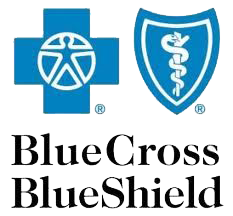
According to the American Association for Cancer Research (AACR), colorectal cancer is the second leading cause of cancer-related death in the United States, behind only lung cancer. Colorectal cancer awareness is an important topic because most cases of this disease are preventable. That’s why this month, Colorectal Cancer Awareness Month, we want to equip you with the necessary knowledge to recognize the signs and symptoms of colorectal cancer.
Understanding Colorectal Cancer
- Risk Factors: A risk factor is anything that increases your chances of developing a disease. For colorectal cancer, notable risk factors include personal histories of colorectal polyps or inflammatory bowel disease or a family history of adenomatous polyps. For a more exhaustive list of risk factors associated with colorectal cancer, the American Cancer Society provides a comprehensive guide.
- Common Signs: Colorectal polyps (abnormal growths in the colon) don’t always cause symptoms, especially at first. This is why screenings and check-ups are critical. However, colorectal polyps can pose the following symptoms: a change in bowel habits, abdominal pains, diarrhea, or constipation.
- Screening Recommendations: The American Cancer Society (ACS) recommends that people at average risk for colorectal cancer begin regular screenings at age 45. People in good health with a life expectancy of more than 10 years should continue regular screenings through age 75. People over 85 should no longer get colorectal cancer screening.
Prevention and Lifestyle Choices
Regular check-ups and screenings as outlined above are key to spotting early signs of colorectal cancer. There are also healthy habits you can incorporate into your lifestyle, and unhealthy habits you can eliminate, to reduce your risk of developing colorectal cancer. Maintaining a healthy weight and getting regular moderate to vigorous physical activity can help lower your risk. The ACS also notes that smoking, moderate to heavy alcohol consumption, and diets high in red meat or processed meat can increase your risk of developing colorectal cancer.
Treatment Options and Surgical Intervention
According to the National Cancer Institute, the five-year relative survival rate for cancer localized to the colon or rectum is 90.9 percent. If the cancer spreads beyond those organs, the rate drops significantly. Treating colorectal cancer typically involves surgery to remove the cancer. Other treatments, such as radiation and chemotherapy, may be necessary in addition to surgery. Treatment depends on the cancer’s location and stage, which is why your physician will likely recommend a personalized treatment plan.
Navigating a cancer diagnosis and the subsequent treatment plan can be a difficult and painful experience. Having a support system of family and friends is helpful, as is having the support of a competent medical team. At Surgery Associates, we take pride in extending our tradition of care to every patient. Our physicians have more than 80 years of combined experience and work diligently to provide North Mississippi with the highest quality of care.

We offer consultations and services by appointment only. To schedule an appointment, visit our Patient Resources page or give us a call at (662) 377-8921.










